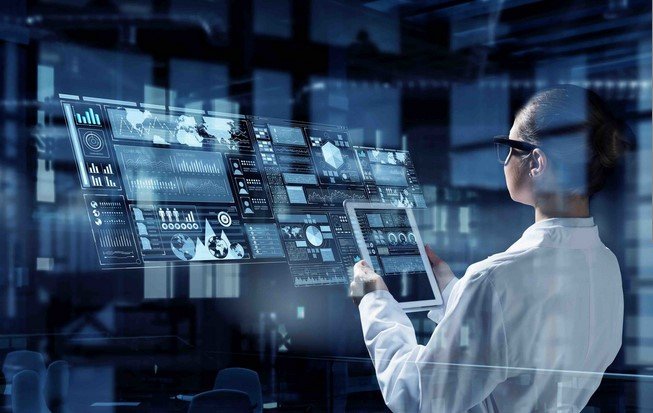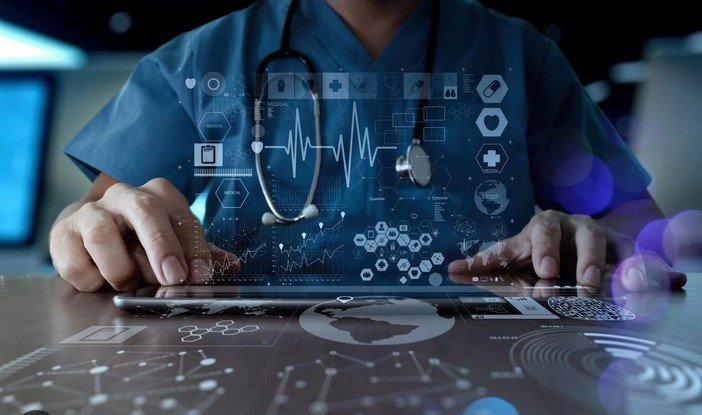The Impact of Technology on Health
Technology has revolutionized nearly every aspect of our lives, and healthcare is no exception. The impact of technology on health is profound, with innovations improving diagnosis, treatment, patient care, and health management. From wearable devices that monitor vital signs to telemedicine that connects patients with doctors remotely, technology is reshaping how we approach health and wellness. While these advancements offer many benefits, it is also important to consider both the positive and negative effects technology has on our health.

Advancements in Medical Diagnosis and Treatment
Technology has drastically improved the way doctors diagnose and treat diseases. Medical imaging tools, such as MRI machines and CT scans, allow healthcare providers to see detailed images of the body, helping to identify conditions that may otherwise go undetected. Furthermore, advancements in robotics have led to minimally invasive surgeries, reducing recovery time and minimizing risks. AI-powered tools are also becoming more common, assisting in early detection and personalized treatment plans. These innovations contribute to more accurate diagnoses, better outcomes, and faster recovery times for patients.
The Rise of Telemedicine
Telemedicine has become increasingly popular, especially in recent years. This technology allows patients to consult with doctors remotely, using video calls or messaging platforms. Telemedicine improves access to healthcare, especially for individuals in remote areas or those with mobility challenges. It also saves time and reduces healthcare costs by eliminating the need for travel to a clinic. During the COVID-19 pandemic, telemedicine proved to be an essential tool in providing continuous care while maintaining safety protocols. As technology continues to evolve, telemedicine is likely to become even more integrated into healthcare systems.
Wearable Health Technology
Wearable devices, such as fitness trackers and smartwatches, have gained popularity in recent years for their ability to monitor various aspects of personal health. These devices track vital signs like heart rate, sleep patterns, physical activity, and even blood oxygen levels. This data helps individuals stay informed about their health and make adjustments to their lifestyle. Additionally, wearable technology can alert users to potential health issues, such as irregular heart rhythms, encouraging proactive healthcare. For individuals with chronic conditions, wearables can offer real-time insights into their health, aiding in more effective disease management.
Mental Health and Technology
While technology offers numerous benefits to physical health, its impact on mental health is more complex. On one hand, mental health apps, online therapy services, and virtual support groups provide individuals with resources to manage stress, anxiety, depression, and other mental health issues. However, the overuse of technology, particularly social media, can negatively affect mental health. Studies have shown that excessive screen time and constant exposure to digital content can lead to feelings of isolation, anxiety, and depression. It is essential to strike a balance between utilizing technology for health improvement while ensuring it does not harm mental well-being.
The Risks of Technology on Health
While the benefits of technology in healthcare are undeniable, it is important to recognize the potential risks. Excessive screen time can contribute to eye strain, poor posture, and sleep disturbances. Prolonged use of electronic devices can lead to “tech neck” and other musculoskeletal issues. Moreover, the reliance on technology for health management can sometimes lead to overdiagnosis, unnecessary treatments, or a lack of personal connection with healthcare providers. It is crucial to use technology in moderation and remain mindful of its potential drawbacks.
Conclusion
Technology has had a significant and positive impact on health by improving diagnostic capabilities, expanding access to care, and providing tools for better health management. Wearable devices and telemedicine have revolutionized personal and remote healthcare, making it easier to monitor and address health concerns. However, it’s essential to be mindful of the potential negative effects, particularly when it comes to mental health and physical well-being. By using technology responsibly, we can maximize its benefits while minimizing its risks, creating a healthier future for all.



